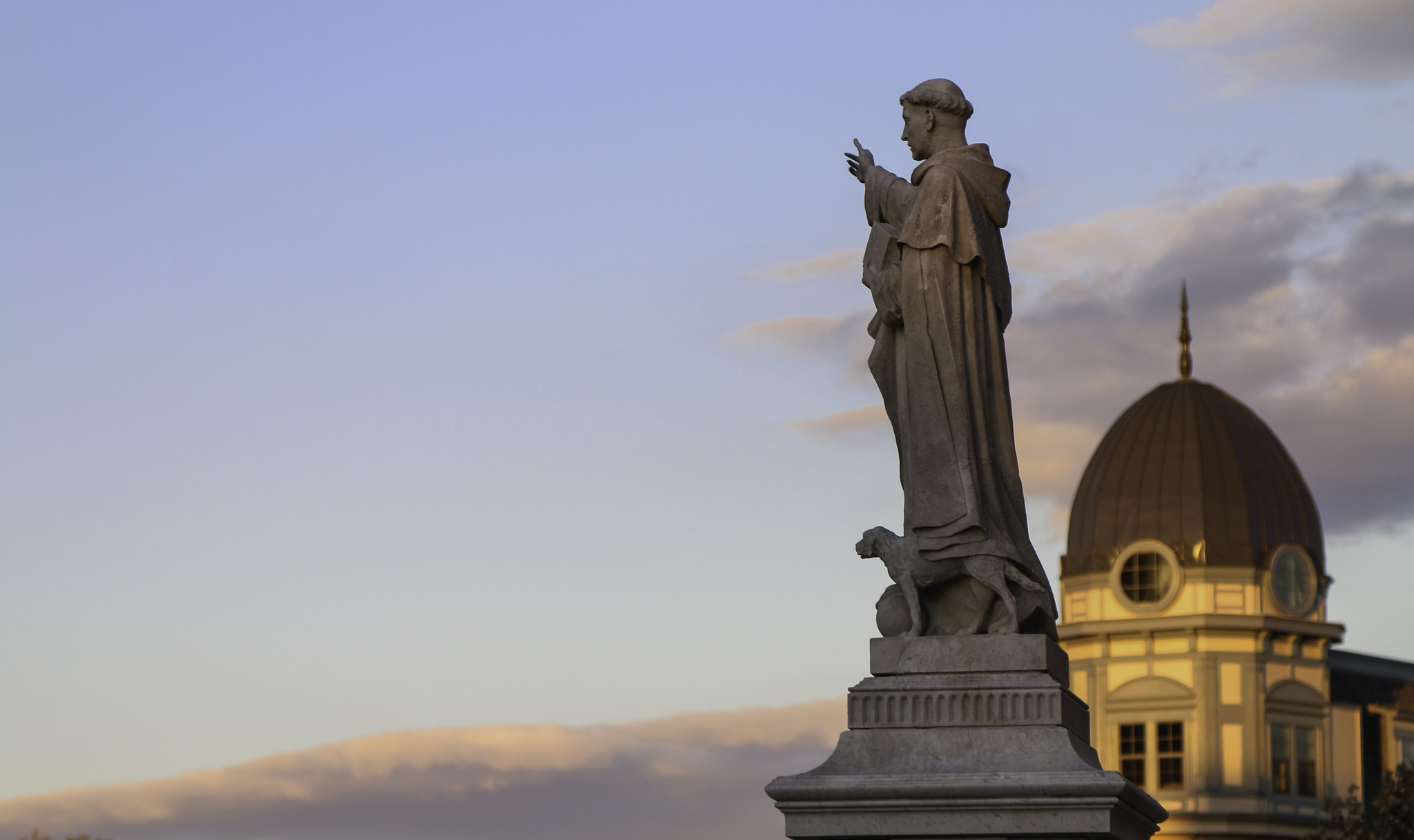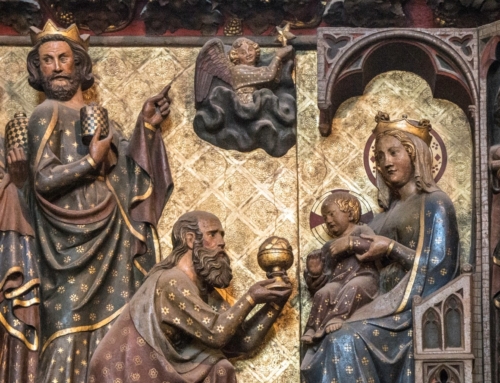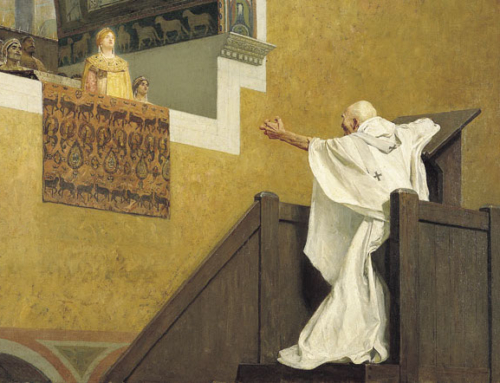Forma Vitae: An Essay on the Dominican Life
A “forma vitae” essay is meant to convey something about the “form of life” that we, as Dominican friars, live in virtue of our religious vows. Each “forma vitae” essay should provide accessible, insightful, and revealing commentary about the Dominican life and vocation. Other “forma vitae” essays can be found here.
Saint Dominic was not a pessimist. We see this clearly in his preaching against the Albigensians, who believed that God did not create material things. St. Dominic saw the flaw in this belief and preached the opposite: God created us, both body and soul. Not only has he wondrously made us, but he even more wondrously redeemed us, the whole of us. St. Dominic held fast to this notion in his preaching and in the Order he founded: we can have confidence in the human person because of our confidence in God.
How do Dominicans understand this idea of confidence? Following in the steps of St. Dominic, we have hope in God’s plan for each friar and confidence that God has called him to the Order for a reason (ST II-II q. 129, a. 6). The Fundamental Constitution of the Order expresses this hope well: “Because of the Order’s mission, personal talents and a sense of responsibility are especially esteemed and cultivated by the brothers. After the completion of his formation, each brother is treated as an adult, competent to teach others and take on various responsibilities in the Order” (Fundamental Constitution, VI).
An encouraging example of this confidence is the preservation of our Order, even as we adapt our way of life:
The Order’s fundamental purpose and the way of life which follows from it retain their worth in every age of the Church’s existence. In such circumstances it is for the Order to renew itself and adapt itself courageously, discerning and testing the elements which are good and useful in humanity’s aspirations, taking them into the unchangeable equilibrium of the fundamental elements of its life. (Fundamental Constitution, VIII)
We may still ask ourselves, “Have we adapted enough, or too much?” These are questions that are worth asking, but we can diffuse our concern when we see the Holy Spirit at work in us and our superiors. This confidence isn’t presumptuous. It’s a recognition of the primacy of God’s grace. This grace gives Dominican life a kind of liberty conducive to growth and maturity as we follow Christ. This confidence is what led the early friars to preach, and it’s what motivates us today. For over 800 years, we have been compelled by grace to preach because we want to help others experience this same confidence in God’s plan for their lives.
Today’s culture especially needs this preaching because there is a popular idea that opposes this notion of confidence: excessive self-confidence. You can find this idea in any self-help section of a bookstore. “Just be the best version of you that you can be, and that’s enough.”
God’s plan isn’t just superficial self-improvement. Virtue is not its own reward. He doesn’t want us to “spruce up” our nature like putting the icing on a cake. Instead, he wants to elevate our nature, ultimately to communion with himself. Our confidence in his plan does not rest within ourselves, but in the power of God’s grace working in us (see Phil 4:13; 2 Tim 1:6–7).
Excessive self-confidence leads many people to look inward at the cost of losing sight of their end: God. Confidence in ourselves apart from God isn’t confidence. It’s presumption (ST II-II q. 21, a. 1). Ironically, when we engage in this God-less introspection, we don’t go deep enough. We don’t tap into the confidence of St. Dominic. Not only does God have a plan for us, but he also dwells in our souls. This awareness of the divine indwelling should spark a well-ordered hope, with confidence and compunction as we see how poorly we bear his image.
Recognizing this indwelling also sheds light on a Dominican motto: Contemplare et contemplata aliis tradere (To contemplate and to give others what has been contemplated). It follows perfectly from the confidence of St. Dominic. He preached for the salvation of souls because he recognized the One dwelling within them. He contemplated this divine image in man, and he confidently preached the One he contemplated. He set the world ablaze with this truth: “I am sure that he who began a good work in you will bring it to completion at the day of Jesus Christ” (Phil 1:6).
✠
Photo by Fr. Lawrence Lew, O.P. (used with permission)







